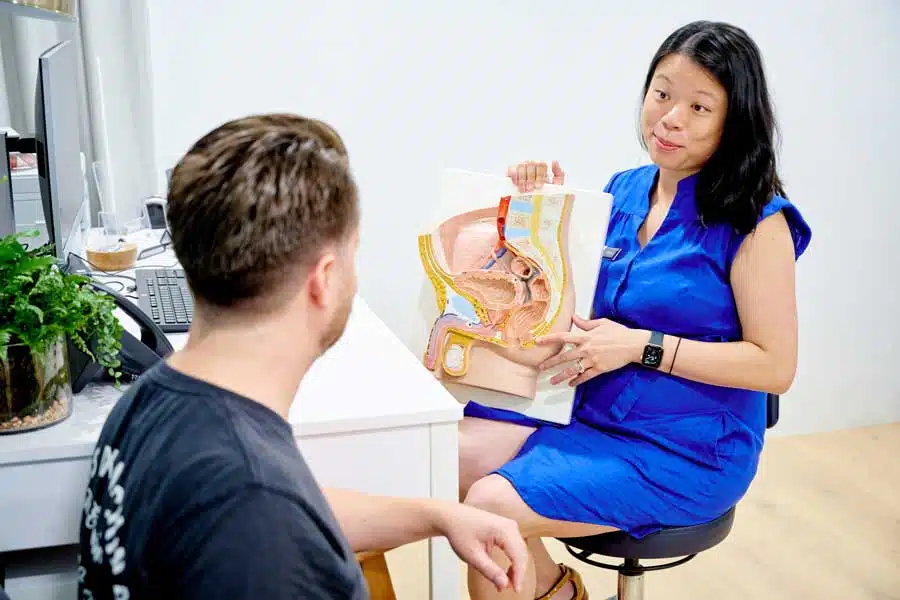In both the physical and the emotional sense, pregnancy is a massive life change for any woman. And as such, recovering from pregnancy requires more than waiting for the bleeding to stop, or your abdomen to heal. The post-natal journey is a long one, with the goal being you getting back to your best self.
We want to empower all women on their post-natal journeys, so they can grow into the best version of themself. If you’ve been feeling down after giving birth, let us help you get back on track, and discover the things you should make a part of your post-natal journey.
Healing Physically
The first thing you’re going to want to do postpartum is focus on healing physically, and we’re not just talking about exercise for weight loss.
Many women leave pregnancy and feel pressure to “get their body back” but there are a lot of hurdles to get there. Pregnancy requires a massive physical and hormonal change, meaning you’ll have to heal all kinds of postpartum conditions you may not even know exist.
After you have your baby, you can expect to spend 2-6 weeks healing from giving birth. This can include healing a cesarean section scar or even dealing with pain and bleeding that come from vaginal birth.
Once you go through this process, you should consider postnatal Physiotherapy as your next step.
Post-Natal Physiotherapy Assessment
Booking a post-natal Physiotherapy assessment is the first step to figuring out if anything is wrong with your body as a result of pregnancy or birth injury and addressing these issues. This is especially important to do if you experience any pelvic pain, abdominal muscle pain, bladder issues, lower back pain, or any other post-natal physical symptoms.
What Does a Post-Natal Physiotherapy Assessment Include?
At Sydney Pelvic Clinic, our pelvic Physiotherapists can assess you for a number of post-natal conditions including the following:
Pelvic Floor Muscle Assessment: Checks pelvic floor function and pelvic floor strength.
Pelvis Assessment: Assessing your pelvic joints and pelvic structure, for overall pelvic health.
Prolapse Assessment: Checking on internal organs. After vaginal childbirth, internal organs can move, or fall into the vaginal space, causing pelvic organ prolapse.
Rectus Abdominis Diastasis (RAD) Assessment: Examining your diastasis recti muscles for signs of abdominal separation in the stomach muscle.
Post-Natal Physiotherapy Treatment
Once you have a physical assessment, your Physiotherapist can walk you through different treatment methods. For conditions like the ones listed above, you will often be recommended physical therapy exercises or massage therapy. However, in some cases, you may to be referred to another healthcare provide for medicine, or even surgery.
Post-Natal Exercise
As we touched on above, post-natal exercise is super important when it comes to healing. However, it can do more than just fix the physical. Exercise, during and post-pregnancy, can do wonders for your overall mental health and wellness.
Exercising post-pregnancy can help you work on weight loss, improve abdominal strength, relieve stress, improve mental health, and help you sleep easier. It’s important to talk with your doctor to ensure it’s safe to exercise, especially if you had a c-section. Typically, though, you can feel safe to start light exercise 1-2 weeks after birth. We recommend booking a post-natal assessment at 6 weeks after birth, this is the best way for you to receive a tailored recommendation and a safe exercise plan.
If you don’t have any prescribed exercises, you can feel free to engage in any type of physical activity. The important thing is to try to hit 150 minutes a week. To aid recovery, focus on exercises that engage core muscles, abdominal muscle exercises, or find a pelvic floor muscle exercise.
You can even find post-natal Physio classes designed for new mums, like the Mums n Bubs classes provided at Sydney Pelvic Clinic. These classes are designed to rehabilitate pregnancy muscles while bonding with the baby. Click here to learn more.
Finding Your Identity Again
Having a baby can change a lot about your life, and yourself. Things that once defined you, like your social groups, work, hobbies, school, are all taking a backseat to your newborn baby. This can lead to new parents feeling lost, or even the development of conditions like post-natal depression.
- To keep your sense of identity, try the following:
- Take breaks from the baby. This can be as small as an hour-long walk, or even a weekend away.
- Practice self-care. Work things into your routine that is just for you, whether it be eating a meal, taking a bath, watching a show.
- Avoid comparison. Don’t focus on what other parents are doing and know all pregnancy journeys are unique.
- Spend time with your partner, making time for dates and bonding.
- Spend time with friends, socializing.
- Make time for hobbies! You can even do them with your baby.
Going Back to Work
You should do your best to prepare yourself for what it will be like to leave your baby as you transition back to the workplace after maternity leave. Here are some things you can do to ease the transition:
Set Up Child Care
Do you want to send your childhood to a daycare? Will a family member step in to watch the baby during the day? Figure out a plan for who will care for the baby when you go back to work well before you return. You can then spend time getting your baby used to their new caregiver.
Pump Breast Milk
If you are breastfeeding, you should spend some time during pregnancy creating a stockpile of pumped breast milk, freezing it for storage. This way, you can ensure your baby still has access to breastmilk for feedings even if you’re not around.
Build a Support System
It’s natural to experience a lot of feelings as you go through this transition back to work. Don’t bottle up how you feel! Reach out to family and friends if you are in need of support, to discuss your feelings.
Your Post-Pregnancy Sex Life
While this might not be high on your priority list immediately after birth, many women will, eventually, want to return to their sex life. Here’s what you need to consider as you return to the intimate parts of your relationships:
How Soon Can You Have Sex?
Most medical professionals recommend waiting 4-6 weeks to have sexual intercourse. It is super common during the first 6 weeks post-pregnancy to experience cramping, bleeding, and clotting. Women might also experience fatigue, a lowered libido, postpartum discharge, and may also need to heal from vaginal tears. It’s recommended you be fully recovered before engaging in intercourse.
Easing Discomfort During Sex
Hormonal changes can make your vagina experience increased tenderness and dryness after pregnancy. To encourage comfort during sex, you can try:
- Using lubrication during sex
- Engage in non-penetrative sex (oral sex, massage, masturbation)
- Take pain relievers before sex
- Take a warm bath before sex
In Conclusion
Getting back to feeling like yourself again is the sole focus of your post-natal journey. By following the tips we’ve outlined, we hope you can get back to feeling like yourself and enjoying life with your new baby. For additional support, book a post-natal assessment with one of our pelvic Physiotherapists and we’ll support you throughout your journey.

